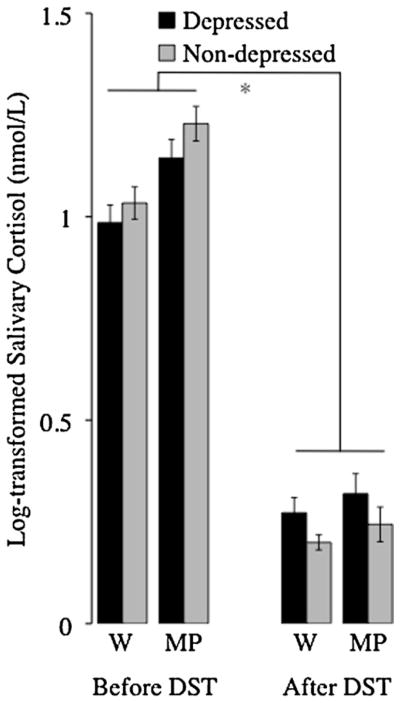Fig. 2.

Dexamethasone effectively suppressed cortisol across the entire sample. However, as expected, depressed and non-depressed women differed with respect to how they responded to the dexamethasone suppression test. Specifically, dexamethasone suppression of cortisol, as indexed by the difference between morning cortisol levels before and after dexamethasone administration, was weaker for depressed women than for non-depressed women. *Significant main effect of sampling day, significant interaction between diagnostic group and sampling day, and significant interaction between sampling day and sampling time (p < 0.05). W, wakening; MP, morning peak; and DST, dexamethasone suppression test.
